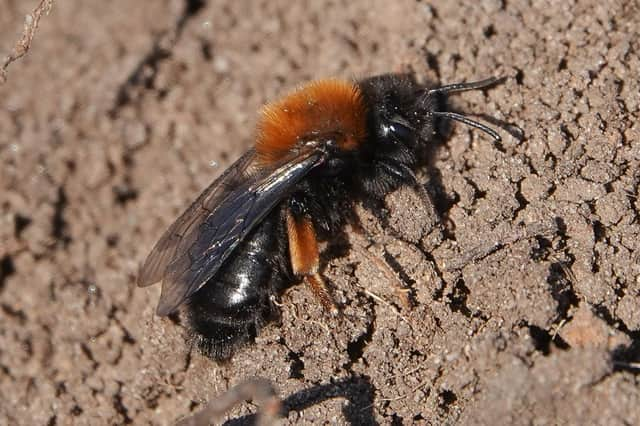Bee-rilliant project for pollinators in East Dunbartonshire


The work was undertaken as part of the Central Scotland B-Lines project funded by NatureScot and the Green Action Trust.
The project has created new spaces for bees, butterflies and other pollinating insects that will boost local pollinator populations and provide attractive wild spaces for local people to enjoy.
Advertisement
Hide AdAdvertisement
Hide AdWildflower grassland has been created at sites in Kirkintilloch and Milton of Campsie, and spring bulbs planted to provide a boost of nectar and pollen, and colour.
In addition to planting wildflowers for pollinators to feed on, the project has created new nesting sites for bees including a bee bank at Hillhead Community Centre in Kirkintilloch.
Claire Pumfrey, conservation officer with Buglife Scotland, said, "When it comes to creating habitat for pollinators it is important to think about the entire lifecycle of the insects so we have provided places for them to nest and shelter as well as flowers to feed from.
"The new bee bank will provide bare sandy ground which heats up fast and is perfect for warmth loving and ground nesting invertebrates such as solitary mining bees and ground beetles, or as a prime basking spot for butterflies and ants.
Advertisement
Hide AdAdvertisement
Hide Ad"Wildflowers within the area provide important nectar and pollen for a range of pollinating insects, including the solitary bees that may nest in this bank.
"Some of the species we hope to see using this bank include Clarke's mining bee, Early mining bee and Gwynnes mining bee."
Joint council leader Andrew Polson added: "We are very aware that pollinators, bumblebees in particular, have seen the areas they can find food and nest drastically reduced.
"These insects are vitally important pollinators and the sowing of these meadows provides the insects with an important food resource."
Advertisement
Hide AdAdvertisement
Hide AdJoint council leader Vaughan Moody said: "By planting these nectar rich wildflower areas we are giving our wild pollinators a much needed helping hand and creating new habitats for other wildlife."
To find out more visit www.buglife.org.uk.